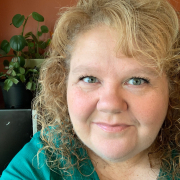Navigating Holiday Gatherings During the Pandemic
Holidays are typically a time of gathering, celebration and tradition. They can also be a time of stress, conflict and different needs or expectations. This year, many of us are especially yearning for that comfort and connection with loved ones. But, just as the desire for connection may be more intense, opportunities for conflict may be intensified as well. Communication is key to finding common ground and making a plan that works for you and those you love. The following is intended to help you think through potential obstacles and develop a plan.
Where to begin:
It’s important to think through what you actually want to do and consider if that is different than what you feel obligated to do.
-
When do you typically give in to family pressure?
- When a certain relative pushes boundaries? When you are caught off guard? When you’re the only one with a differing opinion?
- What role does guilt or obligation play in your decisions?
-
Do you think your opinion or needs are less important than others in the group?
- This can be influenced by age, marital status, whether you have children or other long-term family dynamics
When communicating with your group:
- Communicate with family and friends now to work out plans. Uncertainty often brings more stress and anxiety.
- Family or group dynamics will likely factor in. Those who like to be in charge will still want to be in charge. Those who push boundaries are still likely to do so.
- Ensure the right people are part of the conversation. Having only a few people make the decisions for everyone can lead to resentment and hurt feelings.
- Seek understanding of other points of view, beware of “hot button” tangents (politics, opinions about the pandemic, etc.)
- Be flexible in your thinking. Some things will very likely be different this year.
- Stay focused on what aspects of the holiday are most important to you. For example, if you most want to see people in person, are you willing to skip a big meal or find a way to gather outdoors?
- Take time to think through options and give others time to think. It can help to give a heads up to the group that the conversation is coming so everyone can gather their thoughts.
When considering attending or hosting a specific gathering, it can help to think through:
- Number of people who will be at the gathering?
- Is travel involved?
- How long will a group be together? Indoors/outdoors?
- Are there underlying health factors or risks for those attending?
- What would a virtual or delayed celebration look like?
-
What is the most important aspect of this holiday for me?
- Seeing people in person
- Sharing food or gifts
- Following traditions
- Religious practice or traditions
- Staying safe
- Other factors?
Assess options and establish ground rules:
- Who is hosting? What are the expectations of the host(s) and guest(s)?
- Will attendees get tested ahead of time?
- Is there an expectation that people will quarantine before gathering?
- Should gathering be delayed or broken into smaller groups?
- Is it possible to gather outside? Can seating be spread out?
- Will there be hugging?
-
How will we handle food?
- One person serves, using disposables, items like cookies and candy are packaged individually, skip a meal and just visit, etc.
- Are folks expected to wear masks? Will masks, hand sanitizer, etc be available? Is the host providing that?
- Will gifts be exchanged?
- What holiday traditions may be impacted? Brainstorm ideas for alternatives.
Ground rules for how we treat each other:
- No judgment or hard feelings if someone doesn’t attend.
- Some topics may need to be off the table, such as politics, the pandemic, masks, etc.
- It’s ok to acknowledge that this is difficult or that you feel sad, disappointed or hurt.
Practice what you can say when setting boundaries:
- “Unfortunately, with all of the uncertainty, we’re not going to travel this year.”
- “I feel sad/hurt/disappointed that things won’t be like they typically are but I’m happy we’ll still be able to see one another.”
- “We may see things differently, but I love you and want to find a way to celebrate together.”
- “I realize you don’t agree but this is what I/my family needs to do.”
Keep perspective:
Holiday traditions evolve over time. How we gather can be impacted by military deployments, new babies, illness, people get married/divorced. Our attitude about the changes and challenges we face often determines how we experience these things.
Even when you approach a situation with kindness, know that some people may be angry or hurt when you set a boundary. That doesn’t make the boundary wrong. Focus on what you can control and communicate your needs or limits directly.
Once you’ve developed a plan, focus on the positives of what you will be able to do. Don’t let yourself become stuck in disappointment or resentment. Allow yourself to anticipate what is to come, use gratitude to stay grounded and positive.
Related resource: “CDC: Holiday Celebrations”
